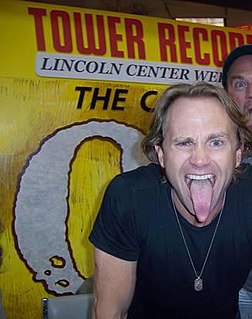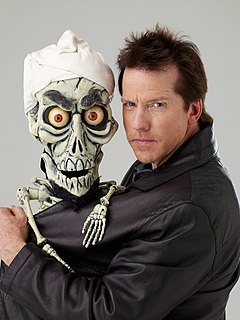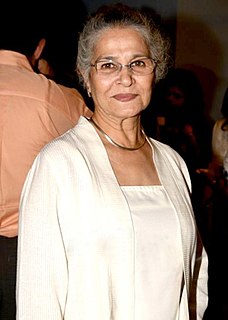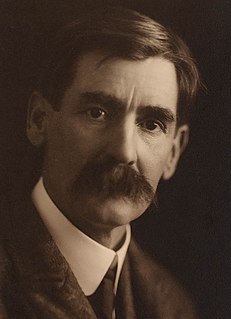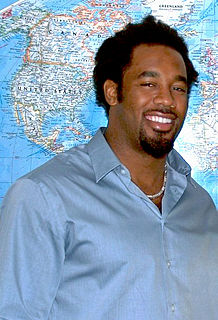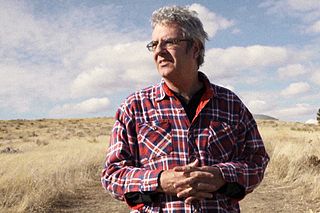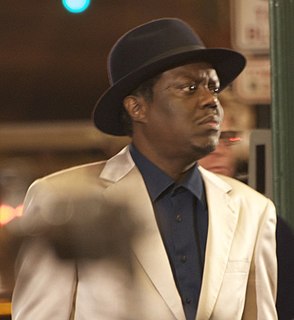A Quote by Lee Tergesen
I think for Beecher specifically, Keller was with him when his wife died. Beecher had decided after he first got into prison that he had to shut off everybody. You can't let anybody in and you have to become like them and you have to be threatening and all that.
Related Quotes
Henry Ward Beecher, so the story goes, was once asked by a young preacher how he could keep his congregation wide awake and attentive during his sermons. Beecher replied that he always had a man watch for sleepers, with instructions, as soon as he saw anyone start nodding or dozing, to hasten to the pulpit and wake up the preacher. Aren't you and I usually less sensible? Would we not be inclined to have the watcher wake up not ourselves but the fellows caught sleeping? In other words, aren't we disposed always to blame others?
I think there's a lot of, unfortunately, unfunny ventriloquists out there, so they've got a bad rap. It came after Edgar Bergen because everybody had a little cheeky boy dummy like Charlie McCarthy, and everybody decided to become a ventriloquist because Bergen had popularized it. He brought it back from the doldrums of vaudeville.
Atul had a child from his first marriage but lost him when he was just 16 years old. His wife died 7-8 years later. He's really had a tough life. Probably these experiences have made him a more sensitive, caring and loving person... Had we been 20 years younger, we definitely would have had children.
The old shepherd had died, or got drunk, or got rats, or got the sack, or a legacy, or got sane, or chucked it, or got lost, or found, or a wife, or had cut his throat, or hanged himself, or got into Parliament or the peerage anyway, anything had happened to him that can happen to an old shepherd or any other man in the bush, and he wasn't there.
At the time I discovered that I had prostate cancer, it was not long after my first wife had died, so my children had lost their mum. I felt that to tell them that I had prostate cancer, while I knew that I had it and there was a threat of some sort, I felt that it would be wise not to make things worse for them.
It would perhaps not be amiss to point out that he had always tried to be a good dog. He had tried to do all the things his MAN and his WOMAN, and most of all his BOY, had asked or expected of him. He would have died for them, if that had been required. He had never wanted to kill anybody. He had been struck by something, possibly destiny, or fate, or only a degenerative nerve disease called rabies. Free will was not a factor.
However, the daily life of the slaves in the South, as observed by many travelers, was obscured for all time by the relentless promotion of a single book, Harriet Beecher Stowe's "Uncle Tom's Cabin." Even today, any black who dares to say that perhaps we are not as badly off as our brethren in the jungles of Africa is hooted down as an "Uncle Tom." [...] It was no accident that Harriet Beecher Stowe's book became the greatest best seller of its time - it was tirelessly promoted throughout the entire nation, in the most successful book promotion campaign in our history.
The bow tie started off with one of my friends, Kunta Littlejohn. He said if you want to be anybody, you've got to rock the bow tie. I dismissed it at first, but later he told me he had non-Hodgkin's lymphoma, so I decided to wear the bow tie to support him. And as he got better, I came to learn the power of the bow tie.
I learned hard lessons in life; I had to because I had so much happen: My mother died my sophomore year in high school. The next year, same day, my brother dropped dead. Two years after that, I got married because my girlfriend got pregnant. The year after my wedding, my father - who I had only recently met - died.
She had, without realizing it at the time, learned to follow Nick's gaze, learned to learn his lust...his desires remained memorized within her. She looked at the attractive women he would look at...She had become him: she longed for these women. But she was also herself, and so she despised them. She lusted after them, but she also wanted to beat them up. A rapist. She had become a rapist, driving to work in a car.
A Jesus had to be crucified because he was an alive man. He must have called in his childhood, "Jesus, don't be befooled by others." And he was not befooled, so others had to crucify him, because he was not part of the game. Socrates had to be poisoned and killed, Mansoor had to be murdered. These are people who have escaped from the prison, and whatsoever you say you cannot persuade them to come back. They will not come into the prison. They have known the freedom of the open sky.
The capitalists owned everything in the world, and everyone else was their slave. They owned all the land, all the houses, all the factories, and all the money. If anyone disobeyed them they could throw him into prison, or they could take his job away and starve him to death. When any ordinary person spoke to a capitalist he had to cringe and bow to him, and take off his cap and address him as 'Sir'
